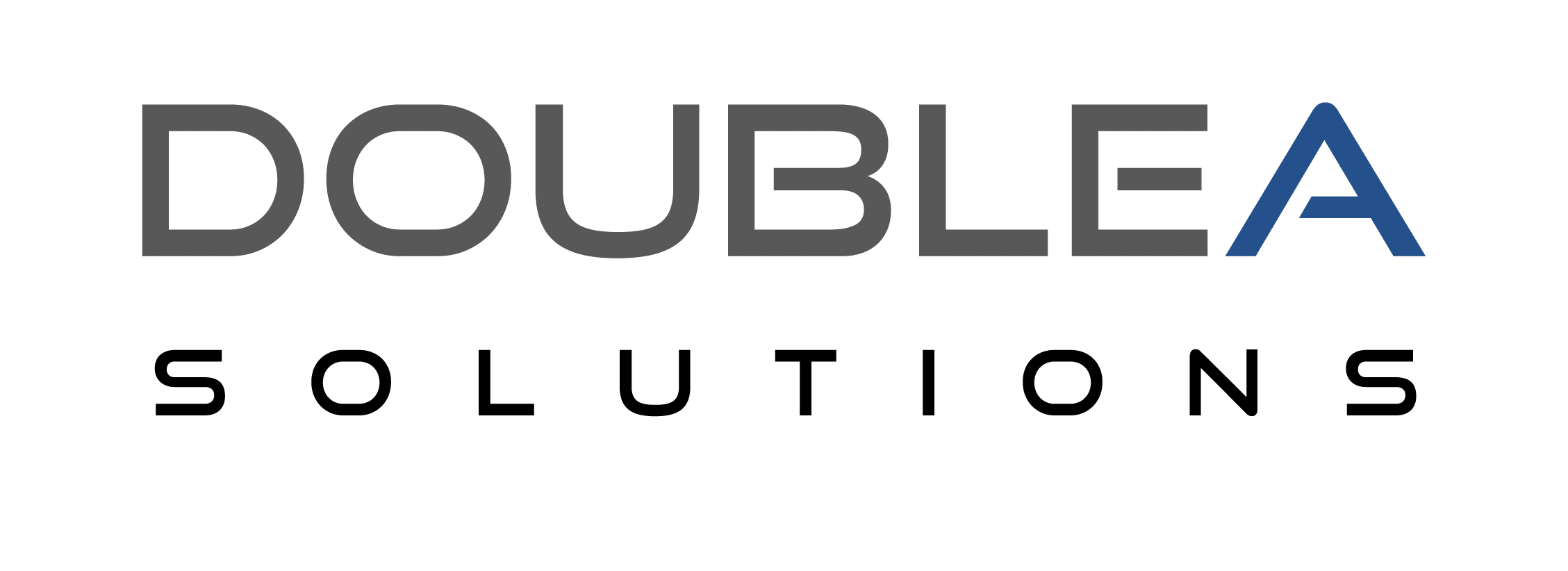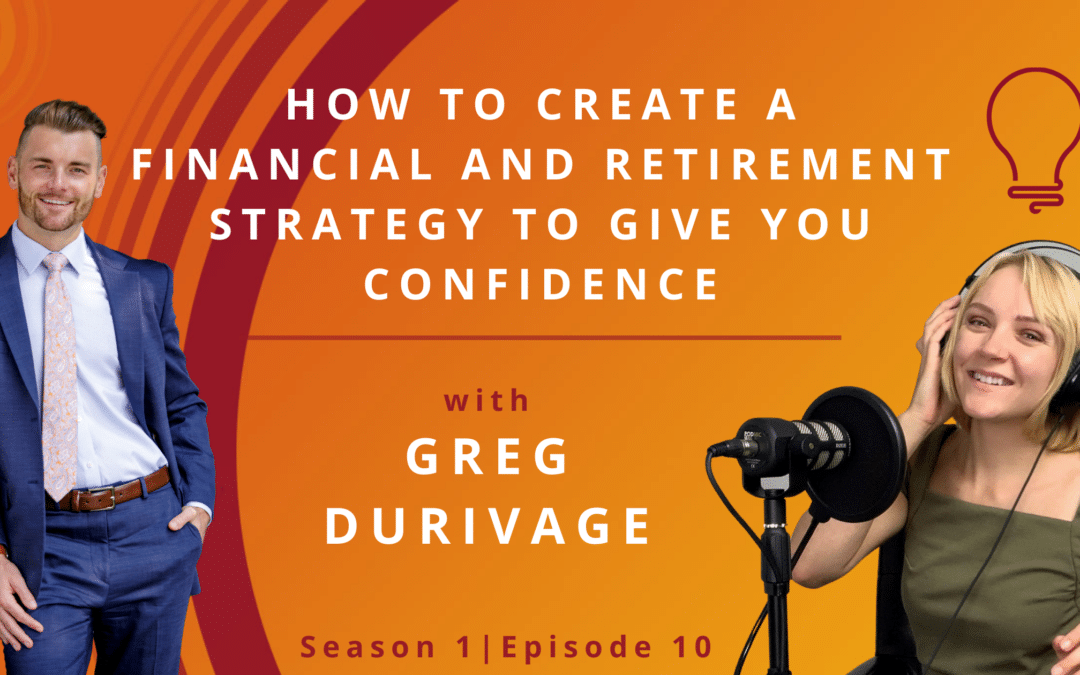From paying off debt to building up savings for a trip or house, to retiring comfortably just as you hope to, financial planning shouldn’t be a big secret or as scary as you first thought.
Our latest episode of Everyday Business Solutions seeks to destigmatize and uncomplicate the start of your financial planning journey.
Enjoy Listening To How To Have A Proper Work Life Balance on Everyday Business Solutions?
Click Here To Subscribe On Your Favorite Platform!
About Our Guest:

Greg Durivage
Financial Associate - Thrivent
Greg Durivage is a Financial Associate with Thrivent Financial, having worked with the company for the past years and runs his own practice out of Maumee, Ohio. Despite being a Toledo Area local, Greg has a few customers across the US and his clientele is only growing as more and more people seek financial stability both for now and for a happy retirement.
We sought Greg out as a guest because the importance of planning has been great, but we’ve seen in the past year exactly how great that need is. In this episode, Greg hopes to take away some of the mystery and stigma surrounding financial planning.

Episode Transcript:
Halie Morris 0:31
Hello everyone, and welcome to Everyday Business Solutions. My name is Halie Morris. I’m your podcast coordinator and host. Today and with me, I have Greg Durivage. Greg is going to tell us about where he is from, what he does, and a little more about his work in particular.
Greg Durivage 0:43
Yeah, thanks, Halie. As you mentioned, my name is Greg Durivage. I am a financial planner at Thrivent Financial.
I started my practice six years ago and have an office in Maumee, Ohio at the moment. I help clients focus on doing holistic planning so that they can achieve their goals. Not only financial goals but just life goals in general.
Halie 1:08
So you’re like the person to come to any time somebody actually wants to not spend all their money at once?
Greg 1:14
Yeah, I guess you could say that a lot of people have that perception. They think that when they sit down with me that I’m going to tell them how to spend all their money and cut back their spending. But, there might be a little bit of that conversation here and there.
A lot of it is actually just showing them how to live a balanced life, making sure that they are able to enjoy the present because tomorrow is not promised. Also if they’re fortunate enough to live a long life, prepare for the future so that they can still accomplish their long-term goals.
It’s not all bad. It’s not all about telling people to cut their expenses and cut back and where they’re spending here and there. But sometimes it does have to do with that.
Halie 2:01
I imagine that would be a lot of my conversation too, like “stop shopping so much. It’s not good for you!”
But no, it is what you said that balances. A lot of people coming out of college or going into the workplace or even currently in the workplace, still don’t know how to manage.
It’s not really taught in schools as much anymore. You’re coming in to advise and give tips and things like that, then help plan on top of that.
Greg 2:32
Yeah, exactly.
We pretty much meet clients wherever they’re at in life. We differ in how we work with clients from how a lot of other financial advisors do, because of the holistic approach that we take.
We take a lot of time to get to know our clients on a personal level before we even really discuss finances or what changes need to happen. We need to understand them on a personal level, you know, what they enjoy doing, what drives their habits, what drives their decisions, that way. We know what their life goals are. And I say life goals because it doesn’t all revolve around finance.
So, if you want to get to a certain point in your career, get to a point where you can cut back the hours that you’re working, get to a point where you can spend more time with your family, do the hobbies you love and enjoy. We’ll help you figure out how to do that by building that into your overall financial plan.
It’s just meeting clients where they’re at and helping them figure out the decisions that they need to make every step of the way in order to accomplish those goals.
We essentially give them a roadmap for success and written recommendations to get there. A lot of individuals nowadays graduate college, if they go to college- not everyone does and they still have very successful careers- but they graduate and shortly after people usually get married and have children.
There’s a lot of financial stress that comes along with all those life events. When you graduate, unfortunately, people typically have large amounts of student loan debt. Then you take on another huge loan with a mortgage and then having a kid, so figuring out how to balance all of that in today is more important than ever
Just because the cost of living now compared to what it used to be is a lot higher. Even though incomes have obviously gone up across the board. The cost of living is so much higher than it’s really really hard to save and find that balance in order to be able to accomplish the things that you want to do.
Halie 4:55
I’m sure you’ve probably seen that social media doesn’t help that too
We see what we want to have or see what we could have or what we think we could. Social media is just one face of somebody’s life. So you see, “oh, well, this person is traveling a lot, I want to travel a lot”.
If they haven’t planned for it, if they haven’t structured their life around that idea and their finances around that idea, it could be very draining to them.
Greg 5:22
Yeah, most definitely.
You kind of hit the nail on the head there because social media shows snippets of people’s life. Typically, it’s just the good, right?
We all see that and kind of get caught up in that and want to be able to do the same thing and I think people need to, at some points, take a step back and realize that that’s not actually that entire person’s life.
But yeah, it is important to plan for those things. As you mentioned travel, you know, that’s a big thing nowadays that people really want to do is travel and make memories rather than spending money on other things. Which, I’m in that same boat, too. I think that’s a great thing. But it is important to plan for.
Like I alluded to before, that’s what we help clients do. A lot of people think that when they hear “financial advisor” or “financial planner”, they think we just want to take all your money and tell you to set it aside for retirement. While retirement planning does factor into your overall financial plan, that’s not necessarily the case.
Our goal is to meet you where you’re at in life and help you accomplish the things that are most important to you.
I certainly have clients who are not necessarily worried about retirement at the moment. They have much more important things in the short term, or even, further down the road that they hope to accomplish before focusing solely on retirement.
I could talk too, I’m blue in the face to tell that person how important retirement is and how important it should be to them. But, that’s not necessarily my job. My job is to help them accomplish the things that are most important to them, by utilizing the resources that they already have, and helping them maximize those.
Also to make those right decisions at the right times.
Halie 7:14
No, it’s kind of cool.
If people are making that decision, then they should jump into the waters and find a financial planner, that’s what somebody wants, they don’t want somebody to just come in and say “well, you can use that this much aside and you need to do this and invest in this”.
It’s just like pulling your money then. It is what you said, like people think, Oh, I’m just gonna have to put all this money, I can’t use it. But it’s like, I know, I’m particular, I want to make sure that I’m financially secure through all these things I want to accomplish.
It’s a very big concern, I grew up in a family that wasn’t.
So I’m always like, I don’t want that. I don’t want that for me. I don’t want for my kids. Or anybody else in my family to have to carry me through any of those situations.
Greg 8:00
Yeah, exactly.
Our job is not to dictate the relationship. The client drives the relationship. We’re just there to partner with them and help them.
You brought up another really good point about family. How you saw your family interact with money in the relationship with money that they had. We see that a lot, that’s pretty much what drives each person’s feelings around money decisions around money. In either good or bad ways.
Some people follow the same footprints as their parents while other people will want to do the exact opposite. Depending on what that relationship was.
But yeah, it’s pretty unique when we get to see the effect that that has on that person’s relationship with money as well.
Halie 8:52
It’s definitely interesting psychology. We see it with a lot of other things. It’s interesting when it comes to this, which definitely affects your standard of life.
I would say when somebody is looking at this right now, it’s such a different situation during COVID-19. I’m just wondering, what have you seen from your side of things as far as your clients and people who might be coming to you at this time, during a giant pandemic and another recession?
Greg 9:23
Yeah, that’s a great question and somewhat of a loaded question. But there are two different parts to it.
One is my relationships with current clients that I already have. I found that during COVID-19, those relationships have only deepened and that’s because people know now more than ever, they want to feel secure. They realize that not everything is in their control. That is a need for increased preparation increases. Planning.
Clients have proactively reached out to me more. My team and I have also proactively reached out to clients to make sure that they’re feeling secure during these unusual times and making sure that they’re making the right decisions.
Then we have also seen a large uptick in taking on new clients at this time as well. For the same reason. People want to make sure that they feel financially secure. Just secure in their life in general.
COVID-19 has brought a lot of financial stress on individuals. That is really why we’ve seen that uptick, some people have been affected in a negative way, obviously, if they’ve lost their job, or if they are a small business owner that we work with and their personal business has been affected.
There’s also been a lot of people who have been affected in a positive way too because if you’ve been fortunate enough to keep your job and not lose any of your income, for the most part, people have seen a decrease in their spending just because of obviously the way that we’ve been forced to live during this time.
They’ve been wondering, “how can I utilize this excess money in order to best accomplish my goals?” That’s what we help clients with at the core.
So they’ve been looking for further advice in regard to that.

Halie 11:25
That’s awesome!
Then with people coming on, do you have those people who aren’t doing as well who’ve seen a downturn in their finances?
Then what would you say to somebody who has seen a downturn who thinks I can’t afford a financial advisor or thinks this isn’t a good time because they’re broke?
Greg 11:44
Yeah, we have seen individuals who have been affected in a negative way. Not necessarily so much at the beginning, just because of the stimulus checks and the unemployment benefits that people were receiving if they did lose their job.
In a lot of cases, people were actually making more money than they were prior. But obviously, everything has to come to an end. That did come to an end or at least the amount that people are receiving was reduced.
We have seen a little bit of an uptick in people being negatively financially affected by it. We’ve still been working with individuals who are in that situation to help them figure out how they can better manage their spending, better manage their finances, in order to make sure that their family is still taking care of and still secure.
It’s still more important than ever and a lot of people think that they aren’t necessarily in need of a financial planner, or financial advisor, because they think that they’re too young, or they’re in the mindset that they might not be able to afford it.
I would just say, you know, don’t make judgments before you explore. What we really try to do is we work with clients that are of all different income ranges, net worth ranges, and all different stages of life.
By meeting people where they’re at in their current financial situation, we don’t necessarily turn too many people away, unless their relationship itself is just not a good fit. We never turn people away, just due to monetary resources.
We customize not only your financial plan around you but also the cost that it may incur. We customize that to each client’s situation to make sure that it is something that fits into their budget and that they can afford, and that they’re still able to get the help that they’re seeking.
Halie 14:00
That’s awesome.
So, my next question is: you’re telling people they probably can afford it if they’re coming to the right people, at least if they’re coming to a company like yours, who’s flexible and willing to work with their budgets and where they’re at in life…
It sounds like most times are going to be a good time.
But how does someone pinpoint I should seek out a financial planner or I should consider seeking out a financial planner?
Greg 14:30
Yeah, so there are definitely certain life events that happen where you should consider financial advice from a professional. Also if you have questions in your head and you’re really not sure, for example, “how much should I be setting aside if I ultimately want to reach this goal?”
Whatever that goal may be, whether it’s purchasing a home, your next car purchase, or managing debt in the proper way and you’re not really sure how to do it, or if you’re doing it in the best way possible, you should probably be seeking out the help of a financial expert in that case.
As life events go, any major life event is an important time to reevaluate your financial needs and your situation.
So, if you’ve been recently married, had a child, been divorced, had a family member pass away, bought a home, are looking to purchase a car. Anything like that, where it’s a big shift and change, you need to figure out how that shift and change is going to affect the rest of your life
Then I would say you should probably consider some type of financial advice, or expertise.
Halie 15:52
Is that something that if you start it, you just kind of keep going? For example, would you work with them for their whole life? Or are there points in which you might just work with them for a short time?
Greg 16:04
Yeah, so that’s a really good question.
It’s client-specific, as far as what they’re looking for, I’d say for 95% of our clients, it’s an ongoing relationship. So throughout their entire life.
There are some clients who are just looking for what we call point in time advice, where they just want to know where they’re at at the moment. And we develop a plan, you know, to show them exactly where they sit and what they need to do to get on track.
The reason that we work with 95% of our clients in an ongoing manner is that your financial plan is constantly and ever-changing. So you know, your financial goals change all the time, your financial situation changes all the time, tax law changes, and the market changes, there’s just all these changes that happen all the time.
Ideally, your financial plan needs to be updated for all those changes to ensure that you still stay on track, to ensure you’re making the proper adjustments and making the right decisions in order to again- achieve the goals that you want to.
Halie 17:16
Thank you. Thank you for that.
Then kind of going off that because you have so many different types of relationships that you deal with. Whether it’s these points in time ones or lifelong relationships.
How are you maintaining those right now? I mean, we’re in person, but most of the time, I bet your interactions aren’t anymore.
How are you maintaining those relationships during this pandemic to remain safe?
Greg 17:43
Yeah, it’s usually virtual, We utilize Zoom a lot to have those, you know, I’ll still call them “face-to-face meetings”. But, when COVID-19 first started, it was obviously all virtual meetings.
Now, we have shifted back to working in the office and whenever we call a client to schedule their six months, quarterly, or annual review, we ask them, “what do you feel most comfortable with”. If they want to come to the office, great! We have the proper precautions in place to allow for that. If not, then you know, we have a very simple process in place.
So whether you’re, 20 years old and very tech-savvy or you’re in your 80s-90s, and obviously we have clients that are in that stage of life and you’ve never used zoom before…we can still make it easy for you and allow us to meet and carry on with our same conversations and same business as usual.
So it really hasn’t affected our business a whole lot. I had already used Zoom pretty extensively prior to COVID-19. Just because I work with clients all over the country. Many of those clients I’ve never even met in person so our relationship was strictly over Zoom.
But, for a lot of my clients, it was definitely a learning curve. Most clients that I have are local and had never used Zoom before, especially those elderly clients. So there’s a little bit of a learning curve there.
I think we will eventually see a shift in our industry moving forward to doing more virtual meetings, even when all of this passes just because of the time efficiency of it.
Whether a client you know, lives five or 10 minutes away, you know, it’s still efficient, and usually, it’s easier for both parties. There’s always going to be some need for in-person interaction, but I feel like we will see an ongoing shift as well.
Halie 19:53
It’s so much quicker sometimes to just jump on a Zoom call.
Especially if you travel times like 30 minutes. I prefer in-person interactions because it’s that brief interaction that feeds people a little bit throughout the day.
It’s very true.
It is really so much easier to jump on a Zoom call for the 20-minute meeting you might have with someone versus driving 30 minutes talking and finding a reason to spend more time before you drive 30 minutes back.
Greg 20:21
Yeah, it’s certainly then more convenient for sure.
Halie 20:26
All right, so kind of pivoting over to a different topic, we have a good amount of people in our audience who are getting to the point where they’re starting to look at starting to plan for their future.
What things can people do now? At the earlier stages in their career. If that’s where they’re at to plan for retirement or plan for later in their career where there’s a kind of unknown?
Greg 20:50
Yeah, so there are a lot of things… That’s a pretty loaded question.
What I’ll do is start going through and explaining a very basic and broad overview of what financial planning entails because that’ll give our audience a good idea of what they should be thinking about and considering, no matter what age they’re at, because it’s never too early to get started, the earlier that you get started, the less that you’ll actually have to set aside in the long run.
So, financial planning, it’s a pretty broad term. it encompasses a lot of things. Essentially, when we put together a financial plan for clients, as I alluded to earlier, we really get to know the client on a personal level, get to know their goals, their values, their hobbies, their interests. Then we eventually are able to gain a holistic view of their financial picture by gathering the necessary documents and having conversations. and once we know all of that, we can put together a customized plan for that client in order to show them exactly what they need to be doing every step of the way in order to achieve their goals.

What that encompasses is: looking at protection planning. so, evaluating their insurance needs, “what are your benefits provided through your employer?”. “Are you maximizing those and taking the best possible benefit that you can from those?”. “What outside coverages do you have in place?” Also, “based on your personal situation, do you have too much coverage in place, too little coverage, etc.”
That is really important to know in order to protect you against setbacks as you work towards all those goals.
Another thing is just helping clients improve their financial situation by evaluating their emergency reserves. So we will ask them again, “how much should you have set aside in bank savings, what’s too little,”. You don’t want too little where, if an emergency comes up, you don’t have money on hand to pay for it and take on unnecessary debt.
But also, what’s too much? Whereas if you have over a certain amount, that money might be able to be better utilized in a different type of account to work towards your future goals.
Also, looking at budgeting. Cash going in, cash going out. Also Debt management! So looking at your overall debts, the balances, interest rates, your monthly payments, and showing you how to pay those off in the fastest amount of time, most efficient amount of time, looking at refinancing options, etc.
The next step then which is moving up from there would be accumulation planning. So saving for any goals that you may have.
This is really where it’s client-specific, you know, it could be retirement, it could be travel, it could be a home purchase, it could be saving for your grandkids, education, your future kid’s education, whatever that may be, it’s showing you how much you need to be setting aside each month, in order to ultimately accomplish that goal. What’s the best type of account-based off on the goal, the time frame, how that money should be invested, etc.
Then there’s obviously the retirement planning piece. Looking at everything that you currently have in place and based on your retirement goals showing you whether you’re on track or not, and if not, we are showing you what you need to do to kind of bridge that gap, tax planning, and estate planning.
It’s just all-encompassing. There are a lot of different things that people should be thinking about, even if you’re young and you know, just graduated, got your first job.
Those are some things that you might want to start preparing for.
Halie 24:48
What if somebody were to ask like, “I’ve never done this before, what one thing I should focus on first before diving into the rest?”
What would be your answer to them?
Greg 24:56
Yeah!
So if you are just starting and you are not thinking you’re in the greatest financial situation, I would recommend focusing on, paying off high-interest debts.
From there, finding the proper balance. For example as yourself, “how much should I be putting towards debt?”. “ How much should I be putting towards savings?”. “How much should I be putting towards my future?”. “My goals?”. “ How much should I be putting into insurance in order to make sure that I’m protected against unforeseen setbacks?”
It’s all just evaluating. If you have X amount of dollars left over each month, which we call your “free cash flow”- where does that money need to be located in all of those different areas in order to meet your needs?
So there are definitely some pieces that we want to make sure foundationally that you’ve covered first, like getting unneeded debt taken care of.
But outside of that not all debt is necessarily bad debt, especially with how low-interest rates are today. So just finding that proper balance of how much money needs to be going where in order to accomplish your goals is really the most important part.
Halie 26:20
I’m very interested in the phrase “Not all debt is bad debt.” There’s the perception that debt is always bad and that you should stay away from it at all costs.
I’m very interested in the phrase “not all debt is bad debt” because I think there’s the concept everyone knows which is that debt is bad, like, stay away from it!
Greg Durivage 26:28
Yeah.
Halie 26:30
It’s a very scary concept for people. So what do you mean by that?
Greg 26:33
Some people don’t like it when I say that because they’re just so stuck in “all debt is bad”.
But when I say “not all debt is bad debt”, I’m referring to low-interest debt and that you pretty much have to have at some point in your life.
You know, credit card debt is not good. You know, certain auto loans are not good.
You know, student loan debt, not necessarily good. But if you want a college education, it’s pretty much inevitable. So that’s not necessarily bad debt.
Taking out personal loans to buy things that you don’t need, that’s obviously a bad debt. I see people take out promotional credit cards to buy this or buy that and obviously, that’s not good debt.
But like, for instance, a mortgage, that’s not bad debt. Everyone needs to buy a home or have a home or have someplace to live, whether you choose to rent or whether you choose to buy, obviously, that matters.
You know, mortgage rates are at all-time lows. They’re some you can find with sub 3% right now, which is extremely low. At that point in time, that’s not what we would consider a bad debt, because you’re able to borrow someone else’s money at a very, very low-interest rate.
We have to look at what’s the most effective use of your money. So, for instance, if you have an extra thousand dollars a month that you know that you can allocate somewhere, does it make more sense to put that extra thousand dollars a month towards your mortgage in order to pay it off faster? Making an additional thousand dollar a month payment towards your mortgage.
Or does it make sense to put it into some type of investment account in order to accomplish a goal? whatever that goal is… Well, it depends on your situation.
But when we look at what’s the most effective use of your money, if your mortgage interest rate is 3%, does it really make sense to put that extra thousand dollars a month, towards your mortgage to save 3%? If you have a deficit for let’s say retirement, and you need to play catch up and set money aside and in a retirement account, you could realistically on average, be earning anywhere between, you know, five to 10 plus percent, depending on your risk tolerance.
So, again, does it make sense to put that thousand dollars towards a mortgage to save 3% or put that thousand dollars somewhere else where you’re currently lacking and can potentially earn five or 10%?
So, just doing simple math, in most cases, depending on your situation, it would make sense to put it in the place where you’re lacking, and so you can actually earn a higher interest rate than what you’d be saving.
Kind of a really long answer to your question..but not all debt is necessarily considered bad debt.
Halie 29.47
Not all debt is necessarily considered bad debt. Some of it’s just necessary and some of it is just manageable.
Greg 29:55
Yeah, exactly.
There’s always gonna be things out there that people need. In order to go on with their life, like a home, a car, things, like that. If you have the ability to pay for those things in cash, then in most cases, that’s obviously going to be recommended.
If you are able to borrow someone else’s money in some cases, like with auto loans, you can find promotions where they have a zero percent interest rate, like you’re borrowing money for free at that point.
So it makes sense to take on that loan and utilize your money to put it to use for your future so that it can grow for your future needs.
So yeah, when it comes to your home, when it comes to certain auto loans, it definitely makes sense to look at borrowing money if you have to. We don’t consider that necessarily bad debt, because it’s just part of life.
Unnecessary debt and high-interest debt, that is definitely bad debt that we want to avoid at all costs.
Halie 30:59
It’s that reframing of how you think about it and I think I saw something the other day on social media, so don’t laugh. But it was about when it comes to some of these things in life and maybe like finances is a very great place to start. It’s like you’re juggling balls, and some of them are plastic, and some of them are glass.
So that idea of what you know, prioritizing what you need to focus on by what’s going to break if you drop it, or what’s just going to bounce, and you can pick it back up.
Greg 31:30
Yeah, I think that’s a really good analogy.
It is no different when it comes to finances or financial planning. So yeah, that’s great. When it comes to financial planning, people just need to realize that our job is not to necessarily judge you or look at mistakes that you’ve made in the past, it’s just to meet you where you’re currently at, leave the past in the past and focus on the future, and how we can help you moving forward.
Halie 32:04
Thank you.
All right. I think that’s kind of wrapping up where we are at with our show today!
So I’ve got a couple of questions for you, one of them being any advice that you would share with people?
Then the other one, being a little more specific…What is your big saving tip, when people are struggling to keep money in the bank versus spending it?
Greg 32:24
I’ll address the second question first, my saving tip is having a separate account set up where the money is just automatically deposited into from your paycheck. You can usually set up through your employer and make sure that that account is not linked to your other bank accounts that are readily accessible.
Even if it’s a little bit harder to access, you still have access to the money. Even if it’s a little harder to access and not easy to transfer from one account to another, just going through that extra step or that extra hoop. sometimes prevents people from making the purchase, because it allows them to second guess whether it’s a smart purchase or not.
If you’re struggling to save, I would say set some boundaries like that. Then you could possibly get the help of a professional who can act as your financial coach, which we do for a lot of individuals to help prioritize and also just think about money differently. So that would be number one.
Halie 33:35
Any other advice you would give somebody with financial advice or anything that you think would be beneficial for people to take away from this episode?
Greg 33:43
I would just say, don’t be afraid to ask for help. That’s the number one piece of advice for whatever reason. I have clients that walk into the meetings all the time and you can tell that their guards are up and I don’t blame people, I mean, talking about finances is stressful, to begin with, and then let alone coming into a professional and laying it all out on the table. Right? That’s not necessarily something that’s going to be exciting or that people look forward to doing.
The most consistent piece of feedback that I always get from peoples when our meeting is concluding or when they’re leaving my office is “man, I just feel so much better”.I think that’s just because when you have put all of your cards out on the table, you’ve expressed may be some mistakes that you’ve made in the past and you’ve let them go personally.
Now that you’re getting professional help and have a plan in place moving forward, you can trust that you have confidence in your money and what it’s doing for you moving forward.
So I would just say get help. Don’t be ashamed. Don’t think it’s too early to start. Definitely don’t think it’s too late to start. That’s for sure.
Halie 35.03
All right. Well, thank you.
I think that’s some great advice to give. Thanks, Greg, for coming on, and thanks to everyone for tuning in to Everyday Business Solutions.
The last thing is, give us some feedback through the reviews, and don’t forget to subscribe. You can also find the whole transcription of our episode on our website at www.doubleasolutions.net.
We’ll see you next week. Thank you and bye

